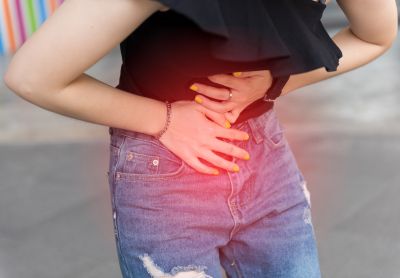Teenage years are a time of profound change—both physically and emotionally. For many adolescents, this period is marked not only by growth spurts and new experiences but also by the onset of menstruation. Unfortunately, along with these changes, some teens also experience premenstrual syndrome (PMS), a condition that can significantly impact their quality of life. At MedStudio, we’re dedicated to helping young people navigate these challenges with understanding and effective treatments. Let’s delve into how PMS affects teens and how hormone therapy might offer relief.
What is PMS and How Does it Affect Teens?
Premenstrual Syndrome (PMS) encompasses a range of physical and emotional symptoms that occur in the luteal phase of the menstrual cycle, typically in the week or two before menstruation begins. For teenagers, PMS can be particularly challenging due to the already tumultuous nature of adolescence.
Common Symptoms of PMS in Teens:
- Physical Symptoms: Bloating, breast tenderness, fatigue, headaches, and muscle or joint pain.
- Emotional Symptoms: Mood swings, irritability, anxiety, depression, and difficulty concentrating.
- Behavioral Changes: Changes in sleep patterns, increased appetite or cravings, and difficulty maintaining daily routines.
These symptoms can interfere with school performance, social interactions, and overall well-being. Teens may find it difficult to manage their symptoms, especially when they are still learning to cope with their bodies and emotions.
Why Hormone Therapy?
Hormone therapy has emerged as a potential treatment option for severe PMS, especially when lifestyle changes and over-the-counter remedies do not provide adequate relief. Here’s why hormone therapy might be considered:
- Balancing Hormones: PMS is largely driven by fluctuations in estrogen and progesterone levels. Hormone therapy aims to stabilize these levels, potentially reducing the severity of symptoms.
- Regulating Menstrual Cycles: For some teens, irregular cycles can exacerbate PMS symptoms. Hormonal treatments can help regulate menstrual cycles, making symptoms more predictable and manageable.
- Addressing Severe Symptoms: When PMS is particularly severe and debilitating, hormone therapy can provide significant relief where other treatments have failed.
Types of Hormone Therapy
- Natural Progesterone Supplements: For some teens, adding progesterone to their regimen can help alleviate symptoms, particularly if their PMS is related to a deficiency in progesterone.
- Nutritional Supplements: Natural supplements such as calcium, magnesium, and vitamin B6 have been shown to support hormonal balance and reduce PMS symptoms. These supplements can help alleviate bloating, mood swings, and other common symptoms associated with PMS.
Considerations and Consultation
While hormone therapy can be effective, it’s important for it to be prescribed and monitored by a healthcare professional. At MedStudio, we emphasize a personalized approach to treatment, considering each teen’s unique needs and health profile. Key considerations include:
- Age and Health History: Hormone therapy should be carefully evaluated in the context of the individual’s overall health and development.
- Potential Side Effects: Like any treatment, hormone therapy can have side effects, so it’s crucial to weigh the benefits against potential risks.
- Regular Monitoring: Ongoing assessments help ensure that the treatment is effective and that any side effects are managed promptly.
A Holistic Approach
While hormone therapy can be a powerful tool, it’s often most effective when combined with other strategies, such as:
- Lifestyle Adjustments: Encouraging regular exercise, a balanced diet, and stress management techniques.
- Educational Support: Providing information and resources to help teens understand and manage their symptoms effectively.
- Emotional Support: Offering counseling or support groups to address the emotional challenges associated with PMS.
Conclusion
PMS can be a challenging experience for teens, impacting their daily lives and overall well-being. At MedStudio, we are committed to providing comprehensive care and exploring all available options to help manage this condition. Hormone therapy is a viable option for many, offering the potential for significant relief when used appropriately. If you or your teen are struggling with PMS, we encourage you to reach out to our team for a personalized consultation. Together, we can find the most effective approach to help navigate these changes with confidence and comfort.

